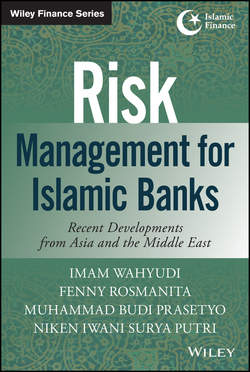Читать книгу Risk Management for Islamic Banks - Imam Wahyudi - Страница 13
На сайте Литреса книга снята с продажи.
Part One
Introduction
Chapter 2
The Islamic Bank and Risk Management
ОглавлениеThe Islamic bank is a financial intermediation institution, bridging a deficit sector in funds with one that experiences a surplus of funds. Conceptually, a bank is a win-win solution not only for the surplus sector and the deficit sector, but also for the bank facilitating the needs of the two. This concept is in line with the concept of transaction within Islam; that all mu'amalah transaction began from the intent of mutual assistance (at-ta'awun), and to spread good deeds among men. The party with the surplus funds benefited from the security provided by the bank (wadhiah-based product) or from the returns of the invested funds (profit-sharing–based product). The party with the fund deficit benefited from the needed financing assistance.
In Islamic finance, Islamic banks are not only expected to be able to fulfill their function as a financial intermediary optimally, but also to fulfill a wider function. The Islamic bank should be able to mobilize the economy by channeling funds that would otherwise lie idle from the surplus sector to business and economic actors in order to support production, distribution, and consumption functions within the society. With this approach, economic benefit will be experienced by all members of society, not only among the richest layers but also by those in need of working capital; this increases the multiplier effect as the gears of the economy move. The function of ‘adalah (fairness) can only be manifested as closely to the ideal as possible if Islamic banks not only act as a “dumb pipe” that funds enter and exit passively, but also involve themselves actively in real economic activities.
Other than the economic-profit dimension, Islamic banks should also encourage various business activities and operations toward a social dimension; this is beyond just executing a social responsibility function. An Islamic bank is encouraged to accept and distribute social funds, like zakat, infaq, and alms (shadaqah), to parties who need them. Islamic banks may have ended up only channeling these funds to fund the consumption function of the poor and needy, in which afterward the funds will be depleted there, without the ability to generate a new cash flow for the poor or to increase their income capacity. Even then, that is enough for the bank to be said to have fulfilled its social function.
